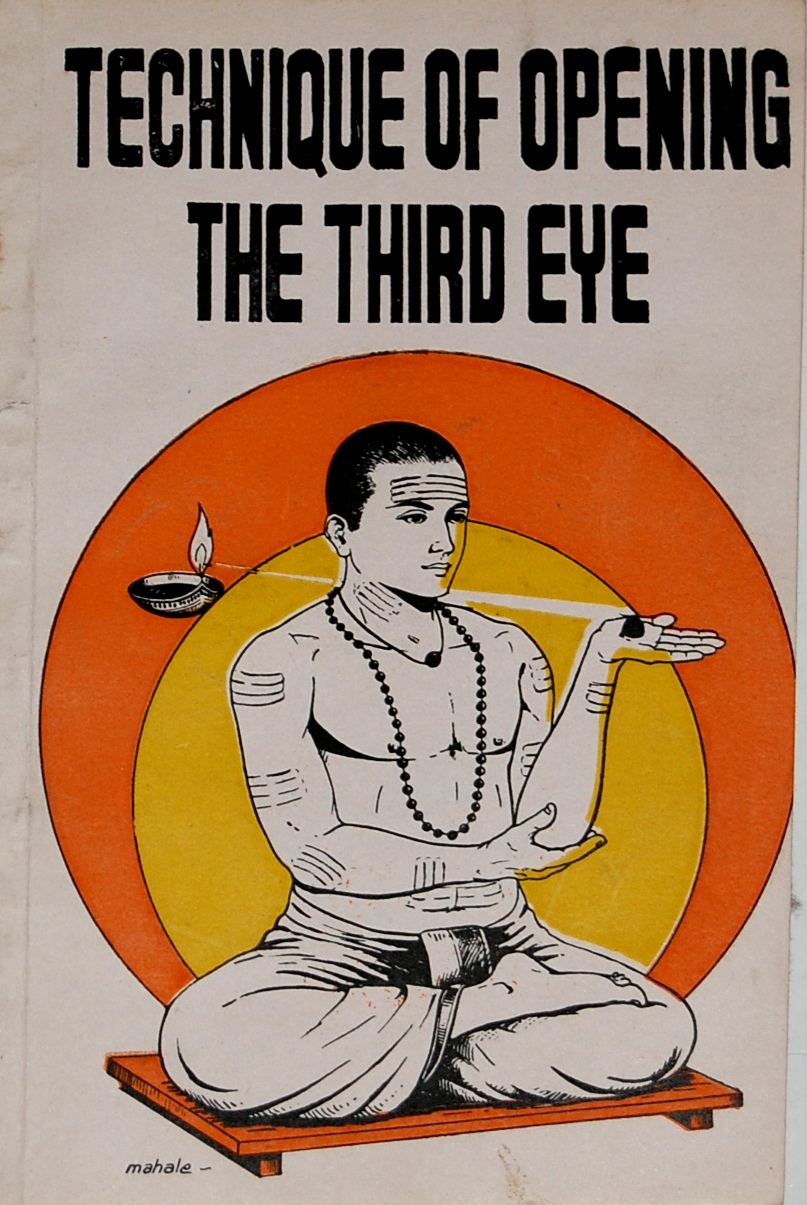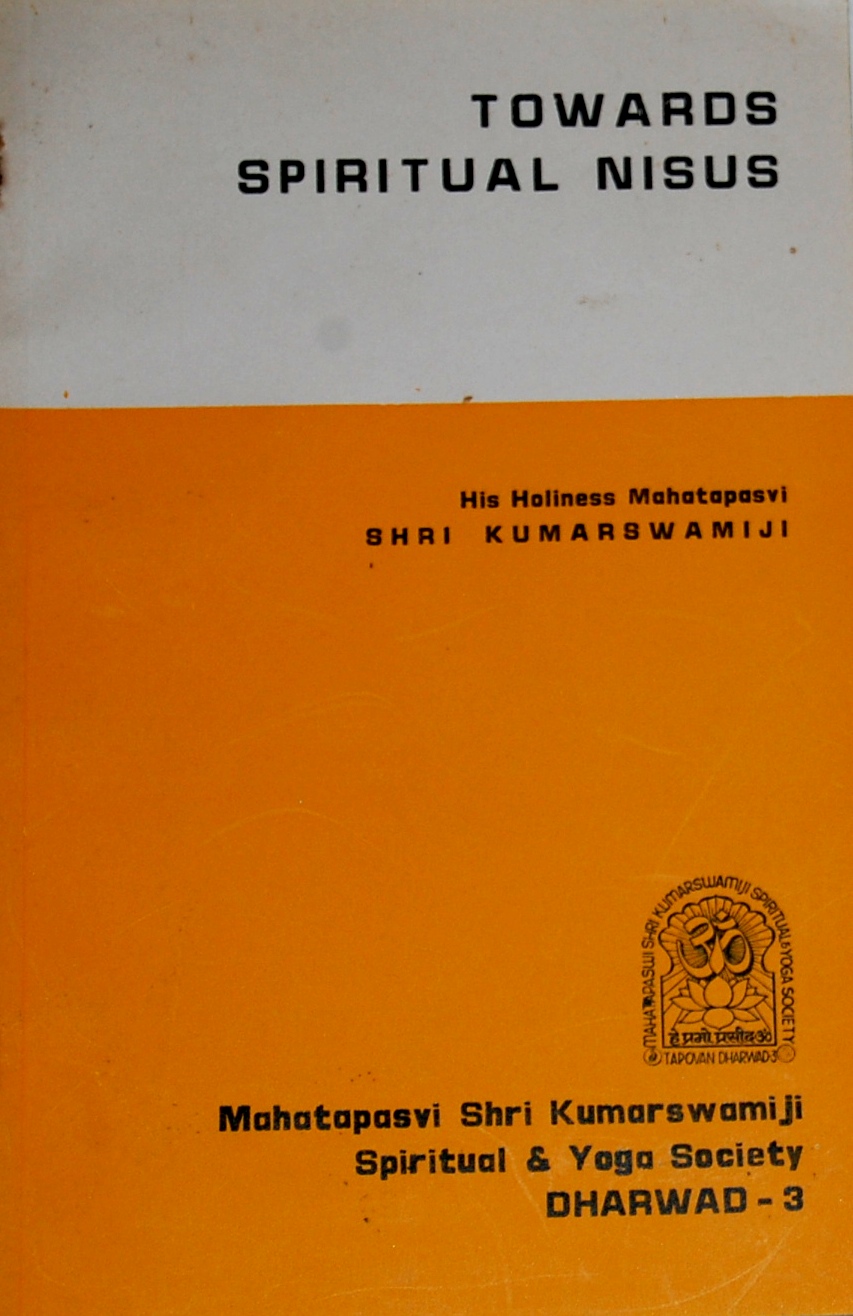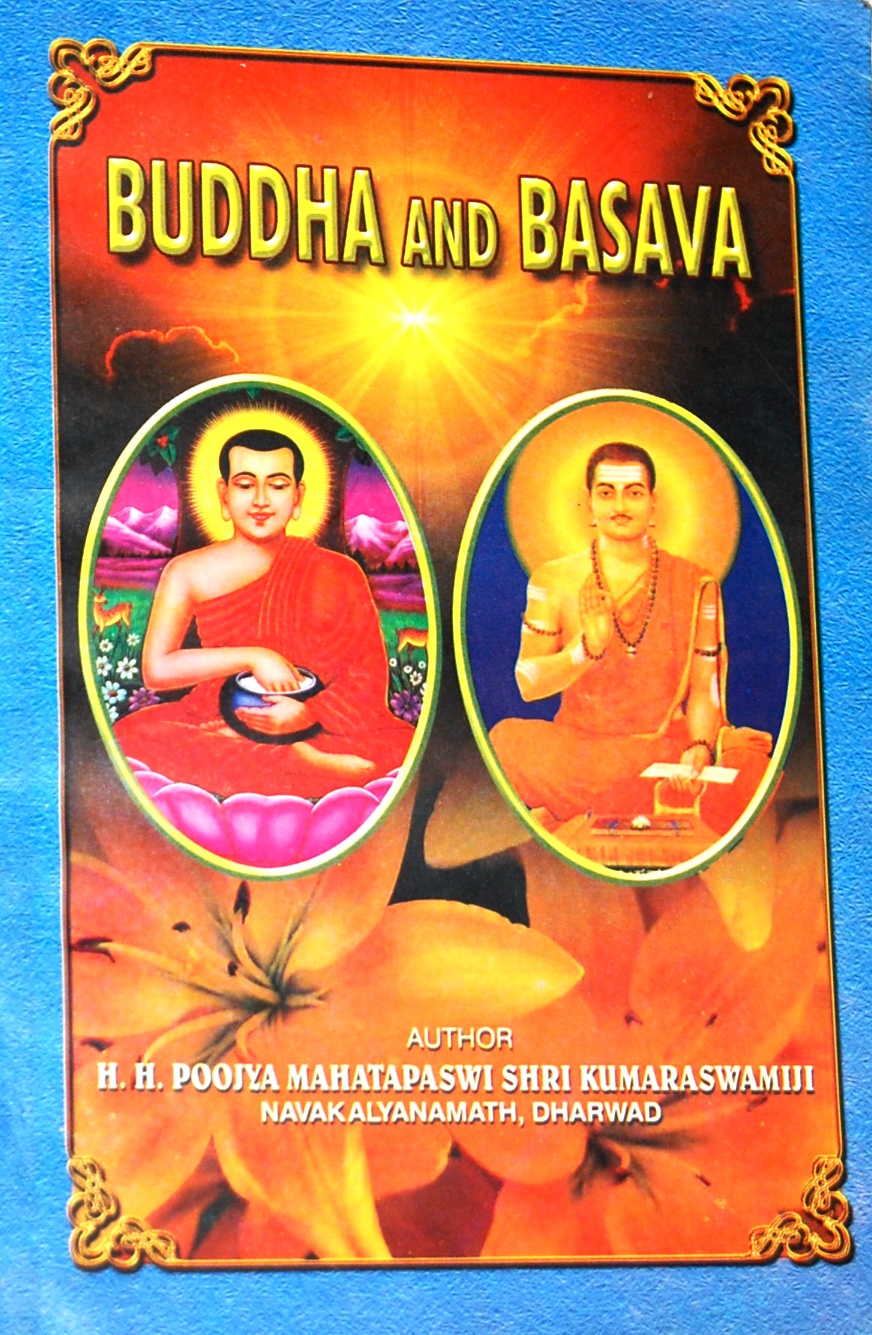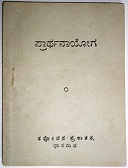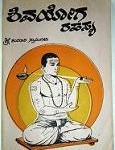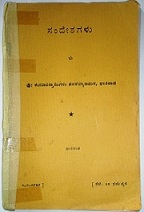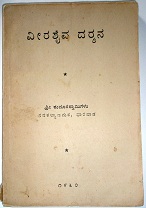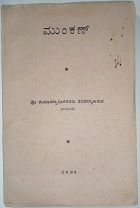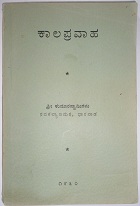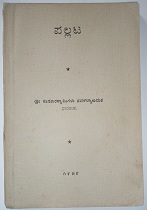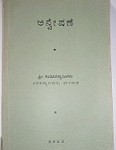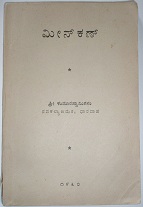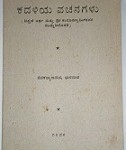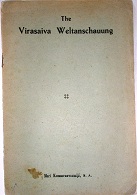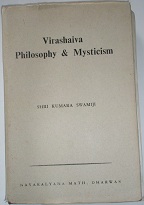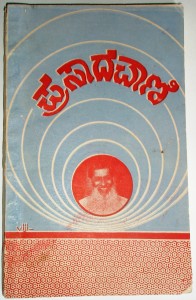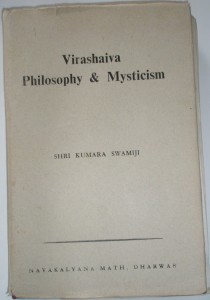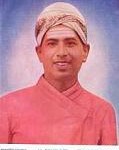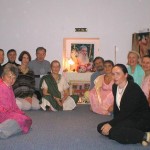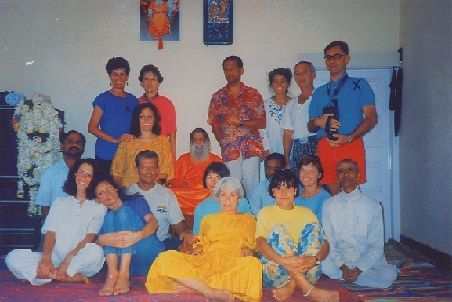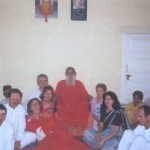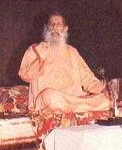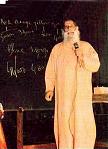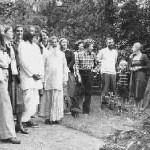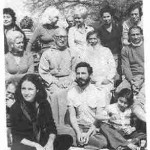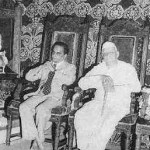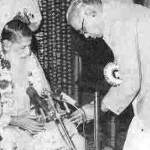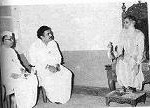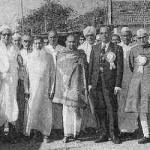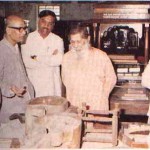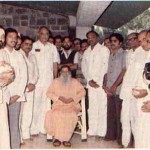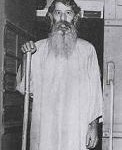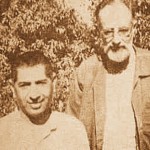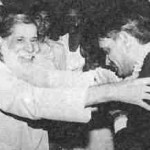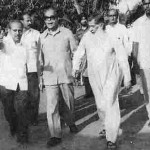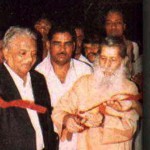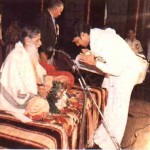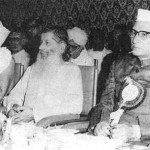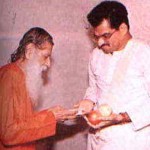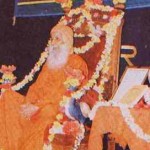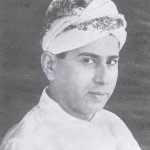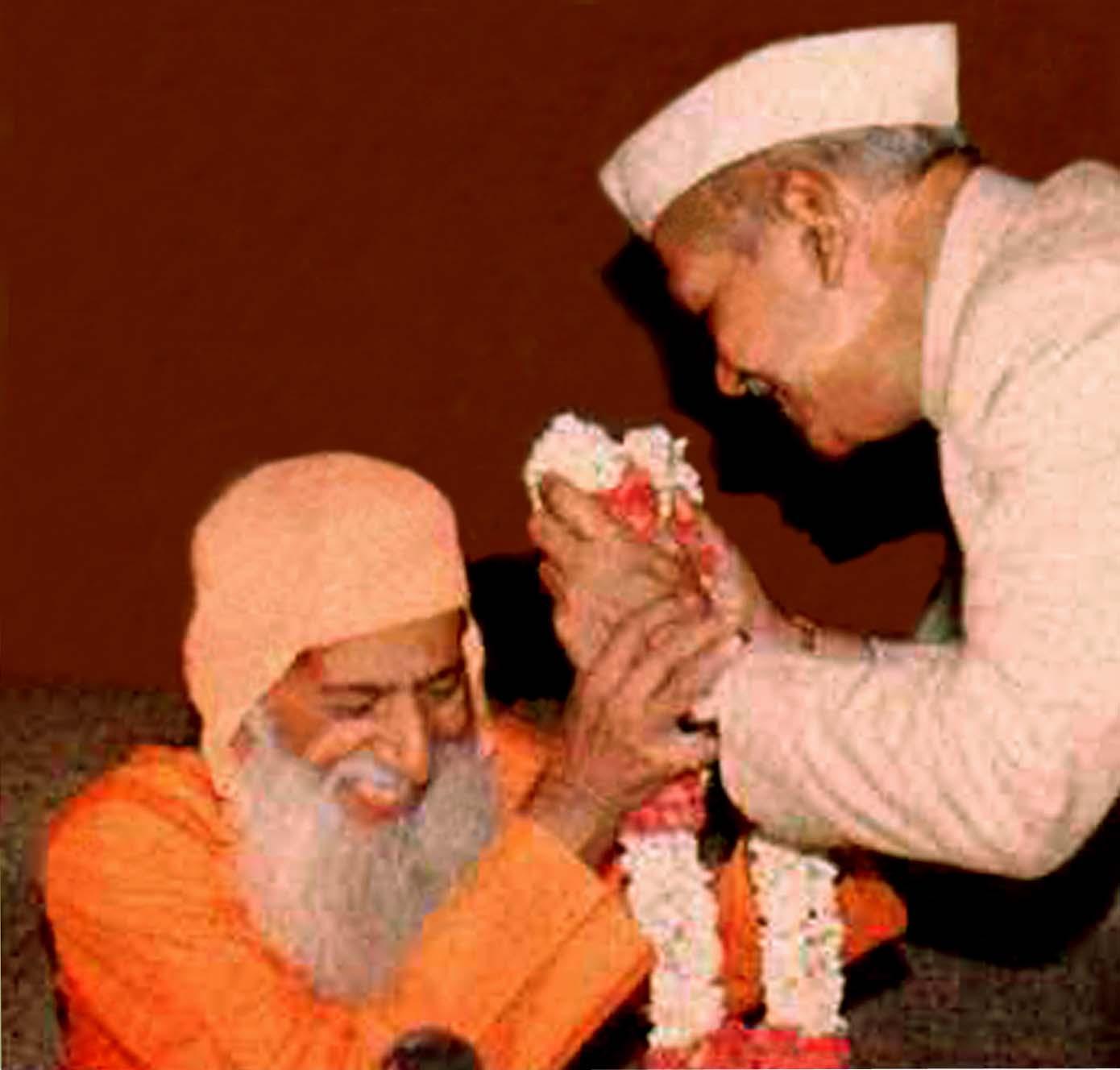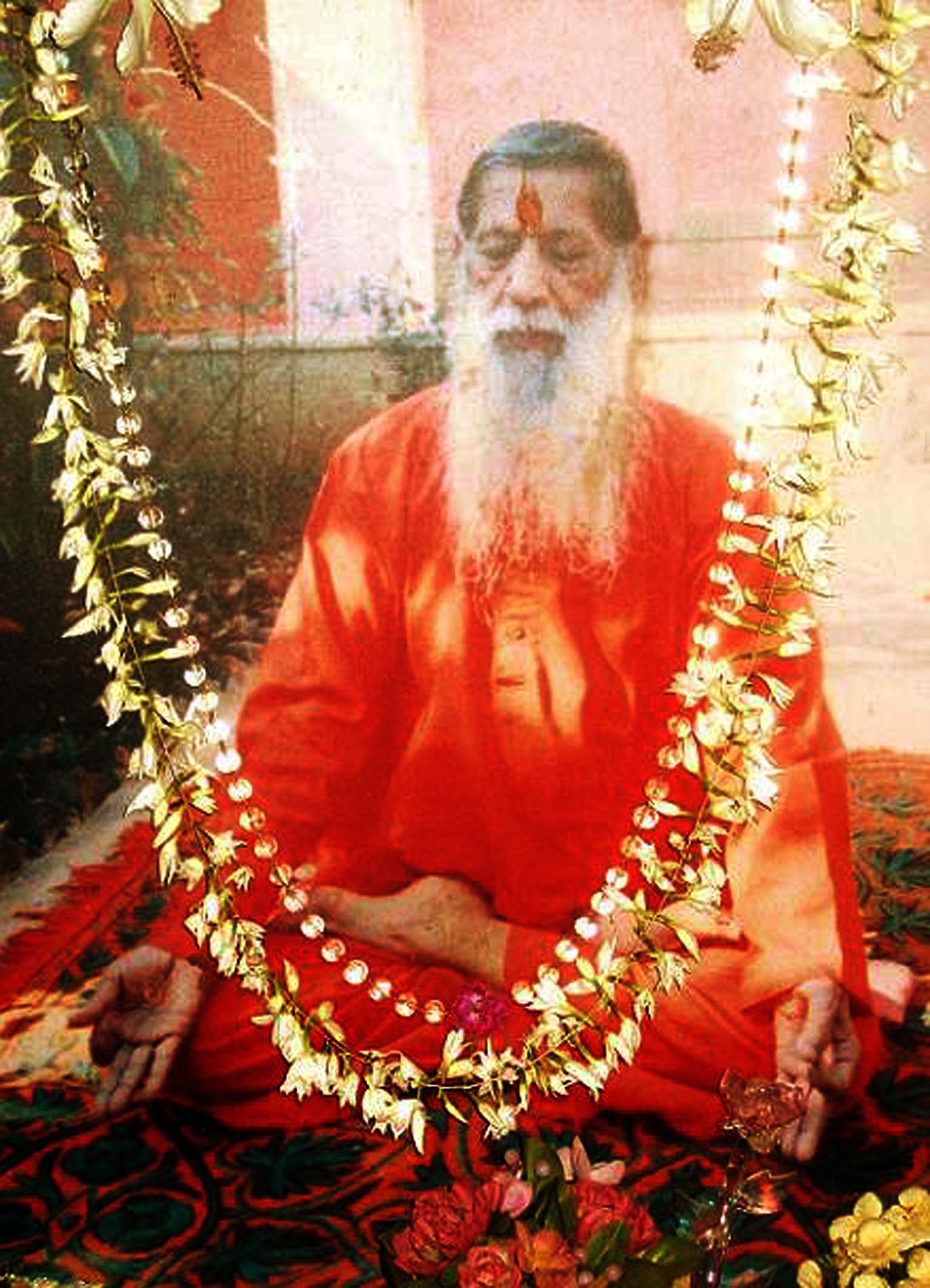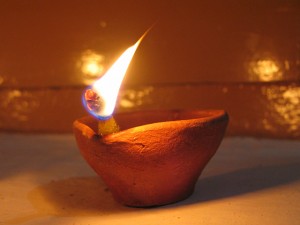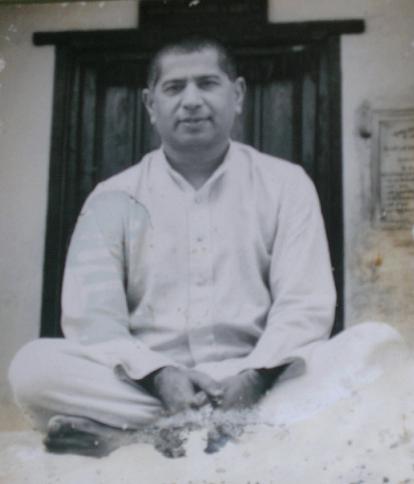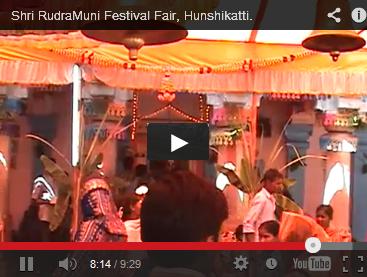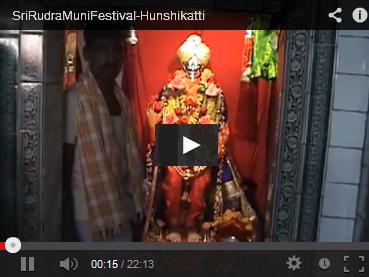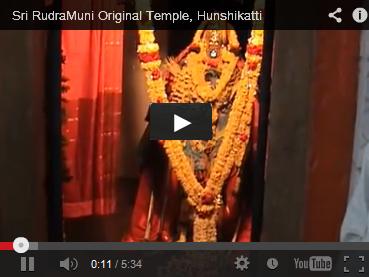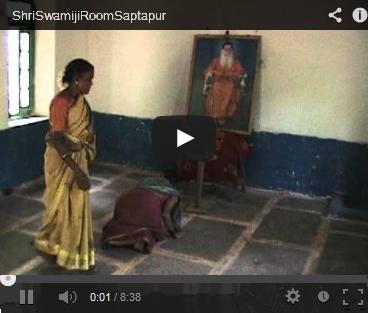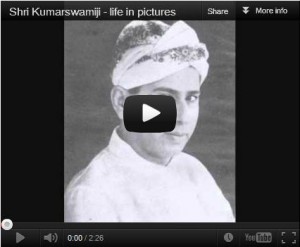One of the monumental works that Basaveshwara did was the establishment of an institution named Anubhava Mantap. It was a spiritual as well as a social academy presided over by Allama Prabhu. That this rare but monumental institution in the cultural history of India was founded by Basaveshwara is corroborated by the sayings of his contemporaries. It was a nucleus around which gathered persons of all shades and all professions and of all ranks, ranging from the prince to the peasant, to take part in the deliberations of the Anubhava Mantap. It is gratifying to learn that amongst the assemblage of these persons numbering about 300, there were nearly 60 women mystics of whom Akka Mahadevi was the beaconlight. She could stand in comparison with any woman mystic either of India or of the rest of the world. She excelled all in point of her astounding asceticism and intense desire to realize God. Her sayings are characterized by the exuberance of emotion, the sublimation of elegance and the transfigration of grace.
Akka Mahadevi was born about 1150 A.D. at Udutadi, a place of historical importance in Shivamogga District of Karnatak State. Her parents, Nirmalshetti and Sumati, were great devotees of Shiva. Akka Mahadevi, even when a young child, displayed her religious proclivities which she probably inherited from her parents. She was a paragon of beauty and princess of lyrical poetry. Her vachanas or sayings are a poetic testament of her mind’s reaction to the wonder and awe of existence. Though the same wonder and poetry are there in her sayings, yet they are deepened and widened by the calm of meditation. Keen spiritual longing shifts the emphasis from the wonder of the outside universe to the significance of the self within. The quest for God, her favourite Channamallikarjuna, rekindled the emotional exuberance of her early poetic genius and compelled her inwards to explore the infinite depths of the soul in which the central principle of creation or God is reflected. She measured the heights of philosophical imagination, yet she did not remain content with the mere intellectual curiosity, she sought more and more a centre of reference in God whom she approached through ardent love and devotion. She instinctively felt that man can never be fully and wholly fulfilled through self-discipline and knowledge, though self-discipline is arduous and knowledge superior. A more human approach to God lies through pure and unselfish love which withdraws most of the obstacles that the ego interposes between the divine and the devotee.
The holy atmosphere at home, the beauty of the natural surroundings and the innate Godward tendency; all these were calculated to make Mahadevi a genuine mystic. The divinity already inherent in her began to manifest all its radiance while she was yet in her teens, i.e., at the age of eight she was initiated into the secrets of Linga. At the age of 16 this concept ripened into full resolve and she could state with firm conviction:
“Listen Oh! mother, I love him
He is the one, the only one
He knows no birth and death
He is uncabined by caste or clime
He is boundless, changeless, formless
He is beautiful beyond comparison
All other fade away and die at last
I will have none of them
My Lord shall forever be
The One Channamallikarjuna.”
A turning point, however occurred in the life of Mahadevi when she, along with many others, had come to see the procession of Kaushika, the king of that place. The king saw Mahadevi among the crowd and was smitten with love for her. With a desire to marry her, the King started negotiations with her parents. But Mahadevi refused to marry the King. She summarily rejected his pleadings, cravings and ravings. The King brought pressure to bear. For the sake of her parents, she enters into a conditional marriage. When the King breaks the condition, she quits the palace. All of a sudden a psychic conversion took place in her and she left Udutadi. She left her home and her parents. She left even the clothes she was wearing. Being guided by an inner urge she began to wend her way towards Kalyana, which was then a place of pilgrimage. But it was far away from Udutadi. Her parents and even some friends tried to dissuade her by picturing the difficulties she might have to encounter on the way. To them her answer was poignant, yet to the point:
“I am no helpless woman
I utter no futile threats
I am nothing daunted
I shall dare hunger and pain
I shall steal out of withered leaves
A wholesome meal
And on pointed sword
Shall make my bed.
I am ready for your sake
To dare the worst
To die this instant
The readiness is all
Oh! my Channamallikarjuna”.
With unflinching faith in God she marched on passing through hills and dales, through shrubs and thickets, through woods and planes and reached Kalyana where she was accosted by Basaveshwara, the founder of Anubhava Mantap. But Allama Prabhu, the President of Anubhava Mantap, put her many questions which she answered in a singularly charming manner. She wanted to participate in the proceedings of the Anubhava Mantap. Here is an interesting dialogue between Allama Prabhu and Akka Mahadevi:
Allama Prabhu: Where from didst thou come, Madam? Tell us who thy Lord is, otherwise our saints forbid thee.
Akka Mahadevi: God Channamallikarjuna is my Lord. I am not at all related to any mortal human of this world.
Allama Prabhu: Thy profuse hair have hidden the body as a garment. God Guheshwara regards this garment as improper.
Akka Mahadevi: Of what use is it if the body turns dull and dark, if it appears blithe and bright? When the heart is rendered pure by the grace of Channamallikarjuna, the complexion of body is of no consequence.
Allama Prabhu: If thy heart is pure, why dost thou hide thy body with the hair? That may be due to inward bashfulness which expresses itself outwardly. This our God Guheshwara does not like.
Akka Mahadevi: I hide it so that your saints may not be enticed.
In the 12th century, Karnatak witnessed a renaissance which exerted its influence on religious, social, economic and educational spheres. The leader of this renaissance was Basaveshwara, a Prime Minister to King Bijjala, who ruled from 1157 to 1167 over the Kalachuri Empire. Kalyana, a city of historic importance in the present day Karnatak State (India), was the capital. Basaveshwar was a mystic by temperament but a statesman by profession. The world presents few instances in whom fugitiveness of a mystic and precision of pragmatist are demonstrated by one and the same individual.
Basaveshwara was an instance in point. One of the monumental works that Basaveshwara did was the establishment of an institution named Anubhava Mantap. It was a spiritual as well as a social academy presided over by Allama Prabhu. That this rare but monumental institution in the cultural history of India was founded by Basaveshwara is corroborated by the sayings of his contemporaries. It was a nucleus around which gathered persons of all shades and all professions and of all ranks, ranging from the prince to the peasant, to take part in the deliberations of the Anubhava Mantap. It is gratifying to learn that amongst the assemblage of these persons numbering about 300, there were nearly 60 women mystics of whom Akka Mahadevi was the beaconlight. She could stand in comparison with any woman mystic either of India or of the rest of the world. She excelled all in point of her astounding asceticism and intense desire to realize God. Her sayings are characterized by the exuberance of emotion, the sublimation of elegance and the transfiguration of grace.
When Mahadevi came to Kalyana she found herself in the midst of the saints who were near and dear to God. Communion with the saints brought a great change in her life. The subtle but irresistible influence of the saints enabled Mahadevi to scale the heights of spiritual life. She speaks in eloquent terms of the benefits she derived from the company of the saints. “I sing, dance, hear, walk and speak in happy fellowship with thy saints, Oh! Lord…. Through conversation with the blessed ones, I have gained respite from my grief. Oh! Lord, I cannot bear parting from the blessed ones who know Thee. … When a soul rubs another and divine experience is born, the traits of the body are all burnt. …. the infirmity of my body is no more; the tremor of my senses is now stilled; the mind perplexed is now calm and serene… all this I gained through the company of the saints. Basavanna’s devotion, Channabasvanna’s enlightenment, Madivala’s firm faith, Prabhudeva’s fearless and carefree state, Ajaganna’s clarity of perception, Nijaguna’s purity of conception, Siddharama’s trance state; the mellowing grace all these saints showered upon me, Oh! Lord.”
The communion with the saints brings wisdom to the simple and sudden calm to those who are tormented by doubts. It floods the personality with new light and the passage from one spiritual state to another is achieved. At the moment of indecision it gives birth to authoritative commands which quell the sufferings of the self. By the communion with the saints even spiritual conversion is attained. Jacob Boehme gives a graphic account of this conversion in memorable words: “The noble Sophia draweth near in the essence of the soul, and kisseth it in a friendly manner and tinctureth; it is a dark fire with her rays of love, and shineth through it with her bright and powerful influence. Penetrating with the strong sense and feeling of which, the soul skippeth in its body for great joy and in the strength of this virgin love exulteth and praiseth the great God for His blessed gift of grace. I will set down here a short description how it is. When the bride thus embraceth the bridegroom, for the consideration of the reader who perhaps hath not yet been in this wedding chamber. It may be he will be desirous to follow us and to enter into the inner Choir, where the soul joineth hands and danceth with Sophia or the Divine Wisdom.”
Akka Mahadevi started from Udutadi, arrived at Kalyana and proceeded to Shrishaila, the place of her last destination where she saw face to face God Channamallikarjuna and was absorbed by him in the plantain grove. This is indeed the secret union here the heart speaks to the heart:
“With thy sweet soul, this soul of mine
Hath mixed as water doth with wine
Who can the wine and water part
Or me and Thee when we combine
Thou art become my greater self
Small bonds no more can confine
Thou hast my being taken on
And shall not I now take on Thine?
Me Thou for ever hast affirmed
That I may ever know thee mine
Thy love has pierced me through and through
Its thrill with bone and nerve entwine
I rest a flute laid on Thy lips
A flute, I on thy breast recline
Breathe deep in me that I may sigh
Yet strike my strings and tears shall shine.”
Mysticism is essentially a movement of the heart, and an intuition of love to the reality. It seeks to transcend the limitations of ego by surrendering it to the real, to satisfy no idle curiosity, to obtain no other worldly gain than to establish conscious relationship with the object of love.
This intuition of the real lying at the source of the tangible world is present in a modified form in all the arts. It is this which gives to them that peculiar vitality, that strange power of communicating a poignant emotion, a heightened form of experience. Blake says that painting as well as music and poetry exist and exult in immortal thoughts. But every artist who has these partial intuitions of reality is not entitled to be called a mystic. The true mystic is a person in whom such powers transcend the merely artistic stage, in whom the transcendental consciousness can dominate the normal consciousness and in whom the surrender of ego to the embrace of reality is complete.
An artist tries to give us in colour, sound and words a hint of his ecstasy, his glimpse of truth. We know how small a fraction of his vision he can contrive to represent. The mystic too strives to tell us his experiences of the beyond. Were the mystic a musician, it is probable that he could give his message to others in terms of that art far more accurately than language can allow him to do. Mysticism finds closest correspondence in the purely artistic and deeply significant form of music. Of all the arts, music alone shares with mystic literature the power of waking in us a response to the life movement of the universe. Beethoven heard the very voice of reality, and little of it escaped when he translated it for our ears.
The mystic is actually aware of the music of soul, discerning in it a correspondence with the measured harmonies of the spiritual universe. In those enraptured descriptions of Mahadevi’s inward experiences, nothing is more remarkable than her constant and deliberate employment of musical imagery. The pictures of warbling parrots, singing cuckoos, humming bees, dancing peacocks are indeed charming to visualize. They conjure up a world of music which arrests the attention of the readers:
“Ye parrots singing in mirthful ease
And Oh! ye swans
Frolicking near the lake
And ye joyous cuckoos
Piping full throated
And ye proud peacocks
Strutting up and down in glee
Over hill and dale
Tell me, Oh! tell me
Ye one and all
Did you ever chance to see my lover
My own Channamallikarjuna”.
The condition of joyous and awakened love for which Mahadevi reaches, when her purification is at an end is to her the state of melody. For her, for St. Francis of Assisi, it is a heavenly melody, intolerably sweet.
A living symbolism of experiences seems almost essential to mystic expression. The mind employs some imagery if its transcendental perceptions are ever to be grasped by the surface consciousness. Sometimes the symbol and the perception become fused in that consciousness and the mystic’s experience then presents itself to him as visions and voices, a garment which he has himself provided to veil that reality. The nature of this garment will be largely conditioned by his temperament as in Rolle’s evident bias towards music, St. Catherine of Genoa’s leaning towards the abstract concepts of fire and light. Above all the marvellous self-analysis of Mahadevi provides the classic account of these attempts of the mind to translate transcendental intuitions into concepts with which it can deal.
Personal idealism finds its exponent in Mahadevi, who is more emotional in temperament. She is deeply religious and the religious mind is concerned primarily, not with the explanation of things, but with experience of values. It regards experience and treats things from the standpoint of value. The religious man relates values to the supreme good, the ultimate good becomes the test and measure of all other goods. To know, to hold, to converse with and enjoy this good is the ultimate end of spiritual endeavour. Hence there runs through all religious consciousness the impulse for communion and fellowship with a divine object that can satisfy the need of the soul. And this communion which is ethical and spiritual is a communion of self with the Supreme. Religious faith construes the object as person. For only the personal life makes values real, and only personal communion can satisfy the soul craving for a living embodiment of goodness. Hence, the validity of this postulate of a Divine personality becomes a central problem for the mystic.
For Mahadevi, Channamallikarjuna is a divine personality in whom she finds the fulfilment of her spiritual endeavour. Mahadevi emphasizes the individual and personal sides of experience; in harmony with this she holds that our ethical and religious value judgements must help to determine our idea of God as the ultimate ground of Reality. She thus discovers the path to the deeper nature of things in what ought to be rather than in what is. This strongly marked ethical and religious element in her sayings reminds us of the writings of Rudolf Eucken who supports a personal type of idealism. Eucken lays great stress on the independence of the spiritual life, a life which breaks with the merely natural and sensuous existence and wins for itself a higher content. Man is a spiritual personality whose life is rooted in an eternal and transcendental life; to become the organ of this renewing and transforming life is the spiritual vocation of man and the true form of his self- activity. But the entrance into the life of the spirit for Mahadevi is not a simple and natural development; it means a reversal of the lower order of existence, a process of conversion which Eucken also upholds.
Mahadevi then accentuates the immediacy, the freedom and the self-activity of the spiritual man or Sharana, and it would be inconsistent for her to regard the eternal and divine life as merely impersonal.
This article – ‘Akka-Mahadevi – The Genuine Mystic’ – is taken from H.H.Mahatapasvi Shri Kumarswamiji-s book, ‘Virashaiva Philosophy & Mysticism’.








